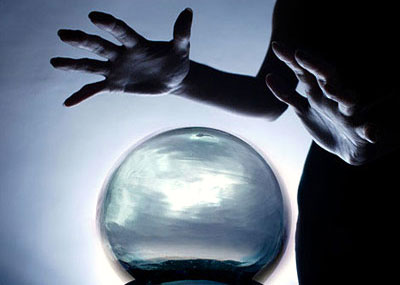
I am not trying to predict the future because it is not a feasible task.
No one walking the earth knows exactly what will happen tomorrow, and recognizing this fact, my trading results have changed for the better. Anyone reading this article may find it odd to hear this from a professional trader and educator. However, predictions can be a dangerous game. Human nature dictates that we always be right and a trader can easily fall into the trap of looking for deals to make money instead of real trading based on technical reasons.
I take a different approach to teaching students to be objective and impartial in trading, much of this I have discussed in my previous articles. I keep students from thinking that they should always be right. If they are constantly trying to predict market direction and results, they soon start to lose sight of the consistent technical analysis, which in reality is: High Probability, Low Risk and not being right every time and all the time. In the real world of trading, even “high probability” is not a “guarantee of success,” and I encourage all of my students to learn to take and enjoy losses — it’s just part of the business.
However, this does not mean that I discourage students to think ahead of time in their market analysis, I firmly believe that it is important to know the possibilities of the price and its direction. It’s almost like preparing for things that can happen even if they don’t. It is not fun and therefore I always keep my mind open and try to be mindful of all things that might happen. You can see that when I am looking for a Forex trade, I am not looking for something that is unlikely to make me money, as I am looking for trades that have minimal risk, high reward potential and odds in my favor. But as I said earlier, these are just criteria and do not mean that the deal will work out. I need something more, I must expect all the possible consequences.
I believe that technical analysis sounds more like an investigation than anything else. For me, a price chart is a roadmap with subtle clues. This roadmap shows us the past and the present. If I look closely enough, these charts will show me the footprints of all the buyers and sellers in the market and what happened at the key reversal points in the market. We can tell if supply was greater than demand by assuming that the price would decline if it returned to that area again. We can get hints about how the market is trading by showing weakness telling me to sell or strength telling me to buy. If we know how to interpret such activity on the graph, then we have a very powerful tool for work, since we can objectively analyze the events of the past and present in order to get clues about what might happen in the future. No doubt nothing is set in stone, but going back to my investigation analogy, I like to help my students think of it as collecting evidence to help them make a decision. Just like any lawyer struggling in court, the better the evidence he provides in support of his case, the more chances he will win it when they await a jury verdict. It goes without saying that even the best struggle and presentation of the case may not get approval, but so what … It’s just a way to act, no one really knows what will happen next in any aspect of life, just like any seasoned lawyer knows that not can win every case, just as a professional footballer knows he cannot win every game. They expect all possible outcomes and still play to win with the odds in their favor. Ask yourself, should trading be different from this?
A clear line can be drawn between Prediction and Interpretation, and this can be used by any novice trader to clearly observe and cover this idea as part of their trading plan. For me, trying to predict what will happen in the Forex market is inconceivable, as I know from my own experience that even the best plan position can fail. In the market, I simply try to trace and interpret all possible events, as a result of which the likelihood of conflict with my emotions decreases. My students and I fully understand that High Probability does not mean Confidence in the organized chaos of the Forex market. We analyze objectively, we limit our risk, set stops and targets, and finally let fate do its thing, while knowing that the market may not behave the way we want it to. but may behave as we expect. Remember that if you got a small loss, then later you can get a big win.
Courtesy of the honorary user of our site – Bizon
